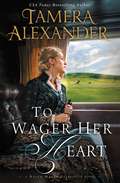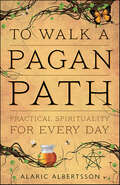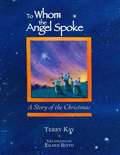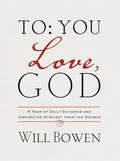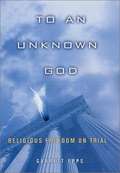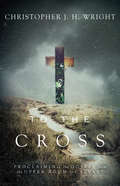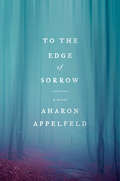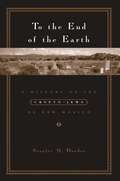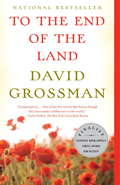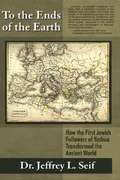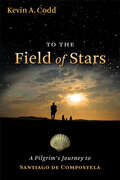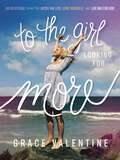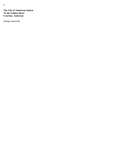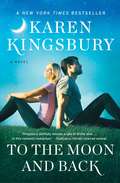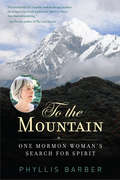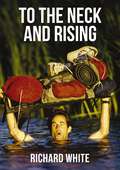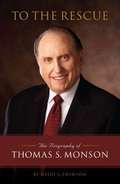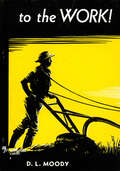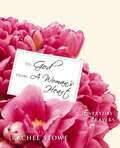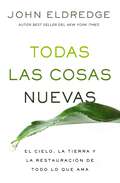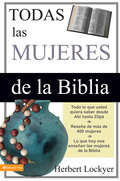- Table View
- List View
To Wager Her Heart
by Tamera AlexanderSet against the real history of Nashville’s Belle Meade Plantation and the original Fisk University Jubilee Singers ensemble, To Wager Her Heart is a stirring love story about seeking justice and restoring honor at a time in American history when both were tenuous and hard-won.With fates bound by a shared tragedy, a reformed gambler from the Colorado Territory and a Southern Belle bent on breaking free from society’s expectations must work together to achieve their dreams—provided the truth doesn’t tear them apart first.Sylas Rutledge, new owner of the Northeast Line Railroad, invests everything he has into this new venture, partly for the sake of the challenge. But mostly to clear his father’s name. One man holds the key to Sy’s success—General William Giles Harding of Nashville’s Belle Meade Plantation. But Harding is champagne and thoroughbreds, and Sy Rutledge is beer and bullocks.Sy needs someone to help him maneuver through Nashville’s society, and when he meets Alexandra Jamison, he quickly decides he’s found his tutor. But he soon discovers that the very train accident his father is blamed for causing is what killed Alexandra’s fiancé and shattered her world.Spurning an arranged marriage by her father, Alexandra instead pursues her passion for teaching at Fisk University, the first freedmen’s university in the United States. But family—and Nashville society—do not approve, and she soon finds herself cast out from both.Through connections with the Harding family, Alexandra and Sy become unlikely allies. And despite first impressions, Alexandra gradually finds herself coming to respect and even care for this man. But how can she, when her heart is still spoken for?Sy is willing to risk everything to win over the woman he loves. What he doesn’t count on is having to wager her heart to do it.
To Walk a Pagan Path: Practical Spirituality for Every Day
by Alaric AlbertssonInspiration and Ideas for a Holistic Pagan LifestyleLive fully as a Pagan every day of the year, not only on full moons and holidays. With practical tips for integrating earth-centered spirituality into every aspect of life, To Walk a Pagan Path shows you how to:Cultivate a meaningful Pagan practice by following seven simple steps.Develop a sacred calendar customized for your beliefs, lifestyle, and environment.Make daily activities sacred with quick and easy rituals.Reclaim your place in the food cycle by producing a portion of your own food—even if you live in an apartment!Express Pagan spirituality through a variety of craft projects: candles, scrying mirrors, solar wreaths, recipes, and more.Create sacred relationships with animal familiars.
To Whom the Angel Spoke: A Story of the Christmas
by Terry KayPeachtree Publishers: “To Whom the Angel Spoke is the story of three shepherds who are as different as men can be. One night, those men hear a voice, and because they believe the voice’s words about the birth of Jesus, they become alike. In author Terry Kay’s moving story, the unifying power of simple belief transcends differences, reminding us that, as diverse as we are, there is a celebration that can bring us all together.”
To Win Her Favor: To Whisper Her Name, To Win Her Favor, To Wager Her Heart, To Mend A Dream (A Belle Meade Plantation Novel #2)
by Tamera AlexanderA gifted rider in a world where ladies never race, Maggie Linden is determined that her horse will become a champion. But the one man who could help her has vowed to stay away from thoroughbred racing forever. An Irishman far from home, Cullen McGrath left a once prosperous life in England because of a horse racing scandal that nearly ruined him. He’s come to Nashville for a fresh start, hoping to buy land and begin farming, all while determined to stay as far away from thoroughbred racing as possible. But starting over proves harder than he’d wagered, especially when Maggie Linden’s father makes him an offer he shouldn’t accept yet cannot possibly refuse. Maggie is certain that her mare, Bourbon Belle, can take the top purse in the inaugural Peyton Stakes, the richest race ever run in America. Maggie only needs the chance to prove it. To give her that chance—and to save Linden Downs from being sold to the highest bidder—Maggie’s father, aging, yet wily as ever, makes a barter. His agreement includes one tiny, troublesome detail––Maggie must marry a man she’s never met. A man she never would have chosen for herself.
To You; Love, God
by Will BowenEmbrace God's Love Every Day What if God sent you a personal, daily message to remind you that he is present, that he loves you, and that things are going to work out? Will Bowen's To You, Love God is a collection of life-changing messages straight from the source. Simple yet deeply moving, this 365-day devotional speaks to you directly with the wisdom, love, and compassion of God. Will Bowen is an ordained minister, sought after motivational speaker, and author of the international bestseller, A Complaint Free World, among other books. He lives with his family near Kansas City, Missouri. Begin each day with a deep awareness of God's presence: Come with me. I am walking just ahead of you-always in sight, never more than a pace or two ahead. Here I am. Take my hand. I have amazing things to show you. Love, God Reader testimonials: What a gift-sort of a "spiritual vitamin" to start each and every morning. Some of the messages are so profound that they have found their way laminated and into my wallet or on my desk where I can see them every day. -M. Manard, Gladstone, MO I really feel like I am talking to God when I read them every morning. You have so helped me. -M. Clesi, Boca Raton, FL The devotions lift me up beyond the daily dramas, always pointing up towards the Light and Truth that never changes.-S. Farrow, Vancouver Island, BC On many occasions the messages are exactly what I need that day. Recently I have been sharing them with my teenage daughter and she loves them! -S. Garland, Kansas City, MO I can't tell you how much "To You, Love God" has meant to me. I read your inspired messages every morning, and what a beautiful way to begin the day. They give comfort, peace, and insight into experiencing the life God wants us all to experience. -J. Westhoff, Green Valley, AZ These messages are the backbone of keeping my attitude positive, and helping me learn to accept others and myself as beings created by God. -P. Loffstrom, Zinga, Tanzania The messages of "To You, Love God" have inspired and sustained me through some of the most difficult times of my life including a divorce and the recent sudden loss of my daughter.-C. Pizzi, Calabash, NC "To You, Love God" inspires me, makes me think, and most importantly, helps me appreciate all the blessings that come my way. -D. Kelley, Clifton Park, NY I read these daily letters from God after I pray and meditate. They seem to be written directly to me each day. -E. Ruppert, Delray Beach, FL I count on starting my day with the wisdom of "To You, Love God." - S. Prince, Long Beach, CA I look at life differently than I did before. Gone is the "poor me" attitude. - K. Hill Morristown, TN They are always inspirational and often "spot on" as to what happens to be going on with me in my life. Very uncanny! -T. Penkala, San Diego, CA
To a Tea (TeaRoom Mysteries #3)
by Vera DodgeBusiness is booming at Tea for Two, so cousins Elaine Cook and Jan Blake decide to hire more help. When Elaine interviews a dapper Englishman with a résumé full of important jobs around the world, she can't help but wonder, Why does he want to work here? As the tearoom readies its first wedding, Elaine's concerns are quickly overshadowed by the groom's sudden disappearance. Cold feet or foul play? The distraught bride turns to the cousins, who spring into action to find the missing groom. To make matters worse, a local bank is robbed. Could the two incidents be related? Elaine and Jan set out in different directions to solve the mystery--even taking Jan to the town's biker bar! Before long, it becomes clear that the cousins are unraveling the same thread from different ends. The question is, will they meet in the middle? Mix together one stately Victorian home, a charming lakeside town in Maine, and two adventurous cousins with a passion for tea and hospitality. Add a large scoop of intriguing mystery and sprinkle generously with faith, family, and friends, and you have the recipe for Tearoom Mysteries.
To an Unknown God: Religious Freedom on Trial
by Garrett EppsThe people and issues behind a Supreme Court Case.
To the Cross: Proclaiming the Gospel from the Upper Room to Calvary
by Christopher J. WrightThe cross is good news for us today.
To the Edge of Sorrow: A Novel (G - Reference, Information And Interdisciplinary Subjects Ser.)
by Aharon AppelfeldFrom "fiction's foremost chronicler of the Holocaust" (Philip Roth), here is a haunting novel about an unforgettable group of Jewish partisans fighting the Nazis during World War II.Battling numbing cold, ever-present hunger, and German soldiers determined to hunt them down, four dozen resistance fighters—escapees from a nearby ghetto—hide in a Ukrainian forest, determined to survive the war, sabotage the German war effort, and rescue as many Jews as they can from the trains taking them to concentration camps. Their leader is relentless in his efforts to turn his ragtag band of men and boys into a disciplined force that accomplishes its goals without losing its moral compass. And so when they're not raiding peasants' homes for food and supplies, or training with the weapons taken from the soldiers they have ambushed and killed, the partisans read books of faith and philosophy that they have rescued from abandoned Jewish homes, and they draw strength from the women, the elderly, and the remarkably resilient orphaned children they are protecting. When they hear about the advances being made by the Soviet Army, the partisans prepare for what they know will be a furious attack on their compound by the retreating Germans. In the heartbreaking aftermath, the survivors emerge from the forest to bury their dead, care for their wounded, and grimly confront a world that is surprised by their existence—and profoundly unwelcoming.Narrated by seventeen-year-old Edmund—a member of the group who maintains his own inner resolve with memories of his parents and their life before the war—this powerful story of Jews who fought back is suffused with the riveting detail that Aharon Appelfeld was uniquely able to bring to his award-winning novels.
To the End of the Earth: A History of the Crypto-Jews of New Mexico
by Stanley HordesIn 1981, while working as New Mexico State Historian, Stanley M. Hordes began to hear stories of Hispanos who lit candles on Friday night and abstained from eating pork. Puzzling over the matter, Hordes realized that these practices might very well have been passed down through the centuries from early crypto-Jewish settlers in New Spain. After extensive research and hundreds of interviews, Hordes concluded that there was, in New Mexico and the Southwest, a Sephardic legacy derived from the converso community of Spanish Jews.In To the End of the Earth, Hordes explores the remarkable story of crypto-Jews and the tenuous preservation of Jewish rituals and traditions in Mexico and New Mexico over the past five hundred years. He follows the crypto-Jews from their Jewish origins in medieval Spain and Portugal to their efforts to escape persecution by migrating to the New World and settling in the far reaches of the northern Mexican frontier. Drawing on individual biographies (including those of colonial officials accused of secretly practicing Judaism), family histories, Inquisition records, letters, and other primary sources, Hordes provides a richly detailed account of the economic, social and religious lives of crypto-Jews during the colonial period and after the annexation of New Mexico by the United States in 1846. While the American government offered more religious freedom than had the Spanish colonial rulers, cultural assimilation into Anglo-American society weakened many elements of the crypto-Jewish tradition. Hordes concludes with a discussion of the reemergence of crypto-Jewish culture and the reclamation of Jewish ancestry within the Hispano community in the late twentieth century. He examines the publicity surrounding the rediscovery of the crypto-Jewish community and explores the challenges inherent in a study that attempts to reconstruct the history of a people who tried to leave no documentary record.
To the End of the Land (Vintage International)
by David GrossmanNATIONAL BESTSELLER • A stunning novel that tells the powerful story of Ora, an Israli mother, and her extraordinary love for her son, Ofer, in a haunting meditation on war and family.&“One of the few novels that feel as though they have made a difference to the world.&” —The New York Times Book ReviewJust before his release from service in the Israeli army, Ora&’s son Ofer is sent back to the front for a major offensive. In a fit of preemptive grief and magical thinking, so that no bad news can reach her, Ora sets out on an epic hike in the Galilee. She is joined by an unlikely companion—Avram, a former friend and lover with a troubled past—and as they sleep out in the hills, Ora begins to conjure her son. Ofer&’s story, as told by Ora, becomes a surprising balm both for her and for Avram.
To the Ends of the Earth: How the First Jewish Followers of Yeshua Transformed the Ancient World
by Jeffrey L. Seif"What became of the first Jewish followers of Yeshua (Jesus)? This book examines the origin of the Yeshua movement and sets the record straight about how the appeal of Judaism and the message of the Messiah combined to transform the ancient pagan world. Readers may be surprised and intrigued to discover that Torah-observant Jewish believers in Yeshua and Gentile believers were actually more in concert than in conflict. There is another story than the one commonly heard about what we call Christian beginnings. The notion that the early Jewish followers of Yeshua disdained Judaism and went on to start a new religion, happily divested themselves of their Jewish heritage as soon as possible, needs to be reassessed. This book offers an in-depth exploration of the impact of these unified communities of Jewish and Gentile believers throughout the Mediterranean region in the periods now labeled as the Apostolic, sub-Apostolic, and post-Apostolic eras." The author's substantiates his facts and reflections from the writings of modern and ancient scholars. The author, Jeffrey Seif, Ph.D., . . . "is best known through his work at the teaching helm of the nationally-syndicated television program, "Zola Levitt Presents. He has also served as a professor of Jewish Studies at a number of academic institutions. Jeff studied at the Moody Bible Institute in Chicago, and subsequently took a master's degree and doctorate from Southern Methodist University, Dallas, in theology and ministry."
To the Extreme
by Tish DavisClare and Candy Drakeforth are as different as night is from day. Candy is shallow and thinks only of herself, while Clare is a Christian who values more than what money can buy. Clare is entangled in deception when Candy wants her to date Rick Spencer, a successful entrepreneur. What Clare doesn't count on is falling in love with this Christian man. How will this web of deceit be untangled?
To the Field of Stars: A Pilgrim's Journey to Santiago de Compostela
by Kevin A. Codd&“I am about to share here a story about stars that dance. . . . If the very thought of seeing stars dance piques your curiosity at some deep level of your soul, then pay attention to what follows, for the walk to the Field of Stars, to Santiago de Compostela, is a journey that has the power to change lives forever.&” -- from the introduction &“Pilgrimage&” is a strange notion to our modern, practical minds. How many of us have walked to a distant holy place in order to draw nearer to God? Yet the pilgrimage experience is growing these days in various parts of the world. Seeking to take stock of his life, Kevin Codd set out in July 2003 on a pilgrimage that would profoundly change his life. To the Field of Stars tells the fascinating story of his unusual spiritual and physical journey on foot across Spain to Santiago de Compostela, the traditional burial place of the apostle James the Greater. Each brief chapter chronicling Codd's thirty-five-day trek is dedicated to one or two days on the road. Codd shares tales of other pilgrims, his own changes of perspective, and his challenges and triumphs along the way -- all told with a disarming candor. Seen through the eyes of a Catholic priest who honors the religious worldview that originally gave rise to these medieval odysseys, &“pilgrimage&” comes to life and takes on new meaning in these pages.
To the Girl Looking for More: 90 Devotions to Help You Ditch the Lies, Love Yourself, and Live Big for God
by Grace ValentineIn this 90-day devotional for young women, Grace Valentine encourages you to stop settling for the world's image of post-worthy perfection and live for more: more joy, more peace, and more meaning.Grace has felt the pressure of our culture's conflicting messages about girls and God, from the picture-perfect &“good Christian girl&” that toxic culture touts or the God who treats women like sidekicks or after-thoughts. For any girl tired of the lies and expectations, Grace has a message for you: you are important to God, and He has so much more for your life.In her first devotional, Grace shares the lessons she has learned through her own challenges and guides you to discover your true identity and self-worth in the eyes of your Creator.In these 90 daily devotions, Grace breaks down the truth of Scripture with her genuine, been-there honesty that has made her a role model for young women. She shows girls of all ages how tostop hustling to please, perform, and be perfectrecognize toxic relationships and leave themlet go of impossible expectations on yourself, your people, and your bodyreplace worry, pressure, and fear with God's peacechoose kindness and positivitynavigate all the mixed messages around sex and datinglive out God's amazing plans for your life"I get it. You're busy! But stop trying to just get through another week, and grab this devotional. Five minutes a day will help you discover how to live your MORE. You deserve this, sister!&” —Grace Valentine
To the Golden Shore: The Life of Adoniram Judson
by Courtney AndersonOn February 12, 1812, Ann and Adoniram Judson sailed from Salem aboard the brig Caravan as two of the first missionaries to go out from North America. Watching the shoreline disappear from view, they could not have foreseen the impact of their journey on the future of the Christian world mission or on the thousands of men and women who would follow in their footsteps. <P><P>After a short stay in India, they carried the Good News of Jesus Christ to the golden shore of Burma. Drawing on letters and church records, Courtney Anderson paints a poignant portrait of Judson’s early life in dealing with the conflict between his desire for material success and the inner call to serve God. For Adoniram Judson the golden shore brought bitter hardships, imprisonment, and family tragedy. Yet, he never wavered in his commitment to win people to faith in Christ and to translate the Bible into the Burmese language. <P><P>This special edition recognized the 175th anniversary of the Judsons sailing on their historic voyage and celebrates the early years of Baptist mission overseas. Photographs and reproductions of Burmese woodcuts are used in telling Judson’s story.
To the Moon and Back: A Novel (Baxter Family #3)
by Karen KingsburyFrom #1 New York Times bestselling author Karen Kingsbury comes a &“heart tugging and emotional&” story in the Baxter Family collection that will &“touch readers deeply&” (RT Book Reviews) featuring two people who lost their parents in the same national tragedy—two people desperate to find each other and the connection they shared for a single day…that changed everything. Brady Bradshaw was a child when the Oklahoma City bombing killed his mother. Every year, Brady visits the memorial site on the anniversary to remember her. Eleven years ago on that day, he met Jenna Phillips, who was also a child when her parents were killed in the attack. Brady and Jenna shared a deep heart connection and a single beautiful day together at the memorial. But after that, Brady never saw Jenna again. Every year when he returns, he leaves a note for her in hopes that he might find her again. This year, Ashley Baxter Blake and her sister Kari Baxter Taylor and their families take a spring break trip that includes a visit to the site to see the memorial&’s famous Survivor Tree. While there, Ashley spots a young man, alone and troubled. That man is Brady Bradshaw. A chance moment leads Ashley to help Brady find Jenna, the girl he can&’t forget. Ashley&’s family is skeptical, but she pushes them to support her efforts to find the girl and bring them together. But will it work? Will her husband, Landon, understand her intentions? And is a shared heartache enough reason to fall in love? With To The Moon and Back &“Kingsbury skillfully weaves a tale of divine love&” (Publishers Weekly, starred review) in an unlikely love story about healing, redemption, hope, and the belief that sometimes a new tomorrow can grow from the ashes of a shattered yesterday. &“Kingsbury writes with seemingly effortless poetic elegance, capturing the tender, intimate moments of daily family life as well as heart-wrenching flashbacks to fatal tragedy. A moving story of survival, of faith, and of beauty from the ashes&” (Booklist).
To the Mountain
by Phyllis BarberWritten by an award-winning writer, this spiritual memoir is distinguished by the author's Mormonism and literary prose. In a series of thought-provoking, personal essays, Phyllis Barber provides an engaging account of how she left her original Mormon faith and eventually returned to it decades later. Her journey begins in the 1990s. In search of spiritual healing and a deeper understanding of the divine, she travels widely and participates with people of many different persuasions, including Southern Baptists; Tibetan Buddhist monks in Tibet and North India; shamans in Peru and Ecuador; goddess worshipers in the Yucatan; and members of mega-church congregations, an Islamic society, and Gurdjieff study groups. Her 20-year hiatus from Mormonism transforms her in powerful ways. A much different human being when she decides to return to her original religion, her clarity and unflinching honesty will encourage others to continue with their own personal odysseys.
To the Neck and Rising
by Richard WhiteIn life there are times when we are overwhelmed by what is happening around and within us. It is like being caught in floodwaters with no way out. King David describes his life this way in Psalm 69. To the neck and rising explores his thoughts, feelings, emotions and attitudes throughout the Psalm. The journey that David takes is not dissimilar to ours and can provide us with valuable personal insights. Choices we make while in the place of the floodwaters determine whether we remain in that place of emotional turmoil or we begin to make steps towards recovery.
To the Rescue: The Biography of Thomas S. Monson
by Heidi SwintonBiography of the president of the Church of Jesus Christ of Latter-day Saints.
To the Work!: Exhortations to Christians (Colportage Library #9)
by Dwight L. Moody"God is ready and willing to work, if we are ready and willing to let Him, and to be used by Him." D.L. Moody, a passionate evangelist, exhorts believers to continue on in the work God has called them to—proclaiming the gospel to the world. Let this book encourage you to work as you are motivated by love, pushed by faith and courage, and strengthened by God.
To the Work!: Exhortations to Christians (Colportage Library #9)
by Dwight L. Moody"God is ready and willing to work, if we are ready and willing to let Him, and to be used by Him." D.L. Moody, a passionate evangelist, exhorts believers to continue on in the work God has called them to—proclaiming the gospel to the world. Let this book encourage you to work as you are motivated by love, pushed by faith and courage, and strengthened by God.
To: A Woman's Heart
by Rachel StoweThis gift book includes more than 90 short prayers arranged in various categories including “Facing a New Day”, “Busy, Busy”, “Marriage” and “Connecting with Others.” The prayers are written by various Christian women throughout the world. The cover features an attractive magnetic closure flap.
Todas las cosas nuevas: El cielo, la tierra y la restauración de todo lo que ama
by John EldredgeEl autor best seller del New York Times John Eldredge ofrece a los lectores una nueva e impresionante perspectiva de la promesa de Dios de un nuevo cielo y una nueva tierra.¿CUÁL SERÁ L A GRAN ESPERANZA QUE SOSTIENE SU VIDA?Este libro revolucionario acerca de nuestro futuro se basa en la sencilla idea de que, según la Biblia, el cielo no es nuestro hogar eterno, sino la tierra nueva. Tal como Jesús afirma en el Evangelio de Mateo, el próximo capítulo de nuestra historia comienza con «la renovación de todas las cosas», refiriéndose a la tierra que amamos en toda su belleza, nuestro propio ser y las cosas que enriquecen la vida: la música, el arte, la comida, las risas y todo lo que atesoramos. Todo ha de ser renovado «cuando la tierra sea hecha nueva».La manera en que imagina su futuro determina su experiencia actual más que cualquier otra cosa. Si estuviera seguro que Dios restaurará, en cualquier momento, su vida y todo lo que disfruta; si estuviera seguro que recibirá una bendición grande y gloriosa, no en el cielo sino aquí en esta tierra, tendría una esperanza que le ayudaría a enfrentar cualquier circunstancia, una certeza en el alma, «la cual tenemos como segura y firme ancla del alma, y que penetra hasta dentro del velo» (Hebreos 6.19).La mayoría de los cristianos no esperan el futuro con ansias porque sus ideas acerca del cielo son confusas, religiosas y, francamente, aburridas. La esperanza surge cuando comprendemos que para el creyente nada está perdido. El cielo no es una vida en las nubes; no consiste en canciones de adoración perpetuas. Más bien, la vida que anhelamos, el paraíso que Adán y Eva conocieron, es precisamente la vida que está preparada para nosotros.Y ESA VIDA VIENE PRONTO.
Todas las mujeres de la Biblia
by Herbert LockyerEl Dr. Lockyer provee un comentario apropiado sobre todas las mujeres conocidas —y no tan conocidas— de la Biblia. Descubrirá cómo la vida y el carácter de diferentes mujeres de la Biblia reflejan las situaciones de la mujer de la actualidad. Más de cuatrocientas entradas concisas y llenas de datos ciertos, que proporcionan una perspectiva fascinante y motivan a pensar. De gran utilidad ya sea que esté conduciendo un estudio bíblico en grupos, hablando en público o simplemente profundizando tu conocimiento personal de Dios.
